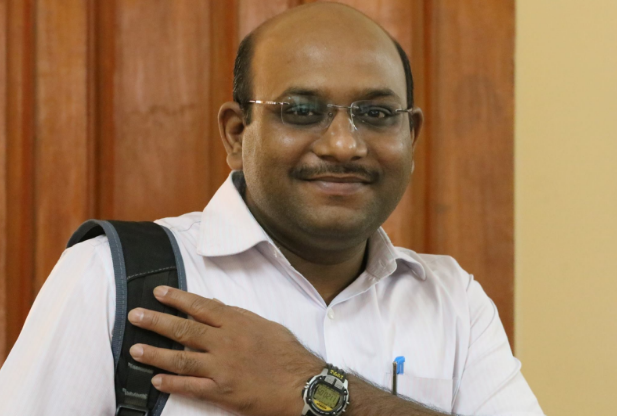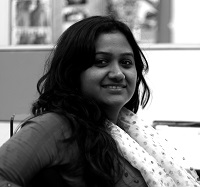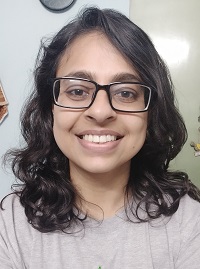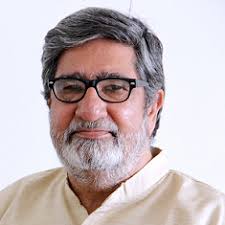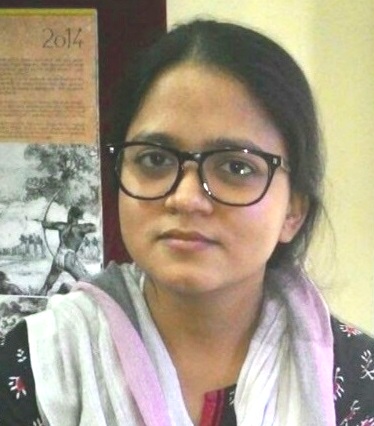About This Course
This is an introductory course for people working or interested in School Education but do not have any formal background in it. The major aim of the course is to help participants brainstorm and reflect on our own ideas about education that we have usually been forming through common hear-say. By giving exposure to most of the issues in school education, this course tries to show how different aspects of education are interrelated and very crucial even to understand one’s own area of interest properly. For example: how important is it to understand relationship between democracy and education for those who want to teach better language pedagogy to teachers? Or to understand nature of science for the language teachers? The underlying idea is that knowing fragments of education without understanding their relationship with the whole may not be of great help, as none of the seven blind men knew the elephant. For this purpose, this course identifies some key areas, issues and ideas to give a first glimpse of larger picture of current scenario of school education, its challenges and major learning problems of students, current policy discourses and some very basic theoretical tools that can be useful in making day-to-day sense of classroom learning of the school students. All the content of the course is proposed to be offered in easy and accessible language minimizing the jargon. The focus will remain on bringing forth the experiences of everyday schooling and making sense of them with the help of collective discussion and reflection; using foundational concepts in education.
Course Objectives
- To help acquiring a larger sense of where the entire school education stands today – its current direction, major learning problems of the students and the major factors affecting it as well as system’s approaches towards achieving educational aims and policy expectations.
- To acquaint with vision and major recommendations of NEP 2020 with special focus on School Education as well as its criticism.
- To think collectively with the help of some theoretical frameworks how to look at our practice, work or interventional projects to deepen our efforts to improve the quality of school education.
Course Details
Units
- The School Education Scenario (total 6 hours: 4 hours online divided into 2 sessions + 2 hours self-study)
- Understanding the current policy discourse: NEP 2020 (total 8 hours: 4 hours online divided into 2 sessions + 4 hours self-study)
- Why are our students not learning? (total 6 hours: 4 hours online divided into 2 sessions + 2 hours self-study)
- Educating a Human Being (total 6 hours: 4 hours online divided into 2 sessions + 2 hours self-study)
- Aims and Content of Education (total 10 hours: 6 hours online divided into 3 sessions + 4 hours self-study)
- Perils of remaining on the surface: Reflecting critically on the prevailing ambiguity in educational discourses and searching some meaningful way outs (total 4 hours: 2 hours online + 2 hours self-study)
Each unit may contain specially developed Self-Study material, short videos, 500-600 word handouts which may include questionnaires and online forms to be filled.
Duration
- 12 online sessions of 2 hours each = 24 hours
- 8 self-study sessions of 2 hours each = 16 hours
- Total duration = 40 hours
The course will be delivered through an online mode.
Assignments will be in the form of online forms and questionnaires. It could be in the form of pre-work, post-work or during the sessions.
Who will benefit from this course?
The ‘Thinking about Education’ is for anyone who is teaching, or who would like to teach, or help teachers in any subject and any context - be it at school, at home or in the workplace. The course is for the current practitioners in education, those who are interested in the first acquaintance with larger picture of education.
Medium of Instruction
Bilingual (Hindi and English)
Digantar was conceived as a platform where quality alternative education could be imparted to the children. Digantar believe that the overall objective of education should be to help children develop into autonomous, rational, and caring democratic citizens. A corollary of this would be that primary education should aim at making children self-reliant and motivated learners. This is an important measure of quality of education in Digantar.
Course Staff
Kuldeep Garg
Kuldeep Garg has been working in the field of elementary education for the last 15 years. As an elementary education worker, he has largely worked with government schoolteachers of rural Rajasthan. He has worked with Digantar and Azim Premji Foundation in various capacities. He has earned a M.A. in Elementary Education from TISS, Mumbai. Before starting his career in the field of elementary education, he has been a student of English Literature, Economics and Geography. He has done his Ph.D. in Urban Geography from Meerut University.
Pragya Shrivastava
Pragya is working in education for more than a decade in areas connected with improvement of education in public system. Her experience covers areas of classroom teaching at primary and secondary levels, development of modules on TLMs, planning and holding workshops for teachers in various subjects (especially in Science), and grassroot support to teachers in classroom. She has worked in Eklavya and Azim Premji Foundation. At present she is working as Teaching Assistant in Digantar.
She holds a bachelor’s degree in Science, a master’s degree in Physics from Barkatullah University, Bhopal, and a master’s degree in Education from Azim Premji University, Bangalore along with B.Ed.
Ridhima Garg
Ridhima has been exploring the field of education for the past six years. She started studying education formally during MA in Education from Azim Premji University. Prior to her MA, she did Teach For India fellowship in Delhi during which she taught for two years in the government schools. She is interested in studying the society and the individual to imagine the kind of education which is required for the children.
Rohit Dhankar
Rohit is a Professor of Philosophy of Education in Azim Premji University, Bangalore; and founder Secretary of Digantar, Jaipur.
Rohit has been part of many initiatives in developing material and curriculum through various committees and collaborative efforts across the country.
His interest in curriculum for school education and teacher education resulted in collaboration with NCERT and various SCERTs. Interest in education studies resulted in starting Foundations of Education Programme at Digantar in 2005, collaboration with TISS and several NGOs in developing MA Education (Elementary) of TISS, Bombay.
He trained as a teacher under David Horsburgh in the Neelbagh School, and taught at the elementary level for about 15 years in a Digantar school he founded with help from Mr. Jitendra Pal Singh and Ms. Faith Singh of Jaipur. Digantar eventually grew into a voluntary organization providing quality education to rural children. Digantar endeavours to nurture self-motivated and independent learners equipped with the ability to think critically.
His formal education is graduation in science and master’s in mathematics, school education through indifferently functioning government schools in rural Rajasthan.
Tuba Khan
Tuba Khan is a Teaching Assistant at Digantar. She is in the field of education since 2012. She had worked in the mathematics education group at HBCSE as Project Scientific Officer and Tata Institute of Social Sciences as Program Education Officer. She also collaborated as Educational Consultant in Wildlife Conservation Trust and Gyan Prakash Foundation. She holds a bachelor’s degree in Chemistry, a bachelor’s and master’s degree in education from Mumbai University, and a master’s in Urdu Literature from Purvanchal University.
